Utilización de Dockers para desplegar en producción sistemas de información heredados
Main Article Content
Abstract
This report addresses a specific case in which a legacy information system hosted on a personal computer needed to be extracted and transferred to a production environment using virtual machines. Since the operating system, library versions, and languages used were not updated on a personal computer, some incompatibilities were found related to these components, resulting in outdated and unsupported software versions. Virtualization on Rocky Linux version 9 was attempted, but, since the operating system was new, it did not include the PHP 7.4 programming language used to develop the information system. This caused a chain reaction in the other components that depended on that module, getting to an insufficient level of virtualization to solve the problem. Using older versions was not the best option due to security risks and lack of support. Therefore, the use of the "Dockers" container platform was explored. This is an executable environment that runs on a main operating system (Rocky Linux) and brings together the necessary elements to run an application or information system. The original operating system (Debian Linux version 11) of the information system was installed on Docker, along with the package of libraries and tools necessary for the application's operation. Encapsulation allowed the security burden to be transferred to the main operating system and allowed the different work environments to be containerized: development, testing, and production within the same virtual machine. This saved time for updating information and facilitated the execution of functional and non-functional tests by allowing the main container to be copied.
Downloads
Article Details

This work is licensed under a Creative Commons Attribution-NonCommercial-NoDerivatives 4.0 International License.
Este trabajo tiene la licencia CC BY-NC-ND 4.0
References
Bruno, V., & Bruno, V. (2020, 30 marzo). Top 5 Alternativas a Docker. Infranetworking. https://blog.infranetworking.com/top-5-alternativas-a-docker/
Creación de imágenes a partir de un Dockerfile. (s. f.). Docker. https://iesgn.github.io/curso_docker_2021/sesion6/dockerfile.html.
Dock, M. (2025, 23 febrero). Pricing | Docker. Docker. https://www.docker.com/pricing/
Gallego, M., & Chico Guzmán, P. (2017). Seminarios OfiLibre Docker y Kubernetes. Universidad Rey Juan Carlos. https://tv.urjc.es/uploads/material/5fb81bcbd68b14ac6f8b4be2/Docker.pdf
MuyComputerPro. (2018, Julio 3). Estadísticas de uso de Docker año 2018. https://www.muycomputerpro.com/2018/07/03/adopcion-docker-estadisticas
Novoseltseva, E. (2023, 22 junio). Utilizar Docker: beneficios, estadísticas y historias de éxito | Apiumhub. Apiumhub. https://apiumhub.com/es/tech-blog-barcelona/beneficios-de-utilizar-docker/
Ponsico Martín, P. (2017). Tecnología de Contenedores Docker [Tesis de grado de Ingeniería Telemática, Universitat Politècnica de Catalunya]. https://upcommons.upc.edu/bitstream/handle/2117/113040/Degree_thesis.pdf?sequence=1
Racero, A., & Som, A. (2022, mayo). Contenedores: Iniciación a Docker y casos de uso prácticos. Oficina de Software Libre, Universidad de Granada. https://osl.ugr.es/wp-content/uploads/2022/05/Contenedores-Iniciacio%CC%81n-a-Docker-y-casos-de-uso-pra%CC%81cticos-Mayo2022.pptx.pdf
Tirado, L. M. (2017). Implementación de Docker en la gestión del entorno de desarrollo [Tesina de Ingeniería, Universidad Politécnica de Sinaloa, Programa Académico de Ingeniería en Informática]. http://repositorio.upsin.edu.mx/formatos/TesinaLiliaMariaTirado3453.pdf



